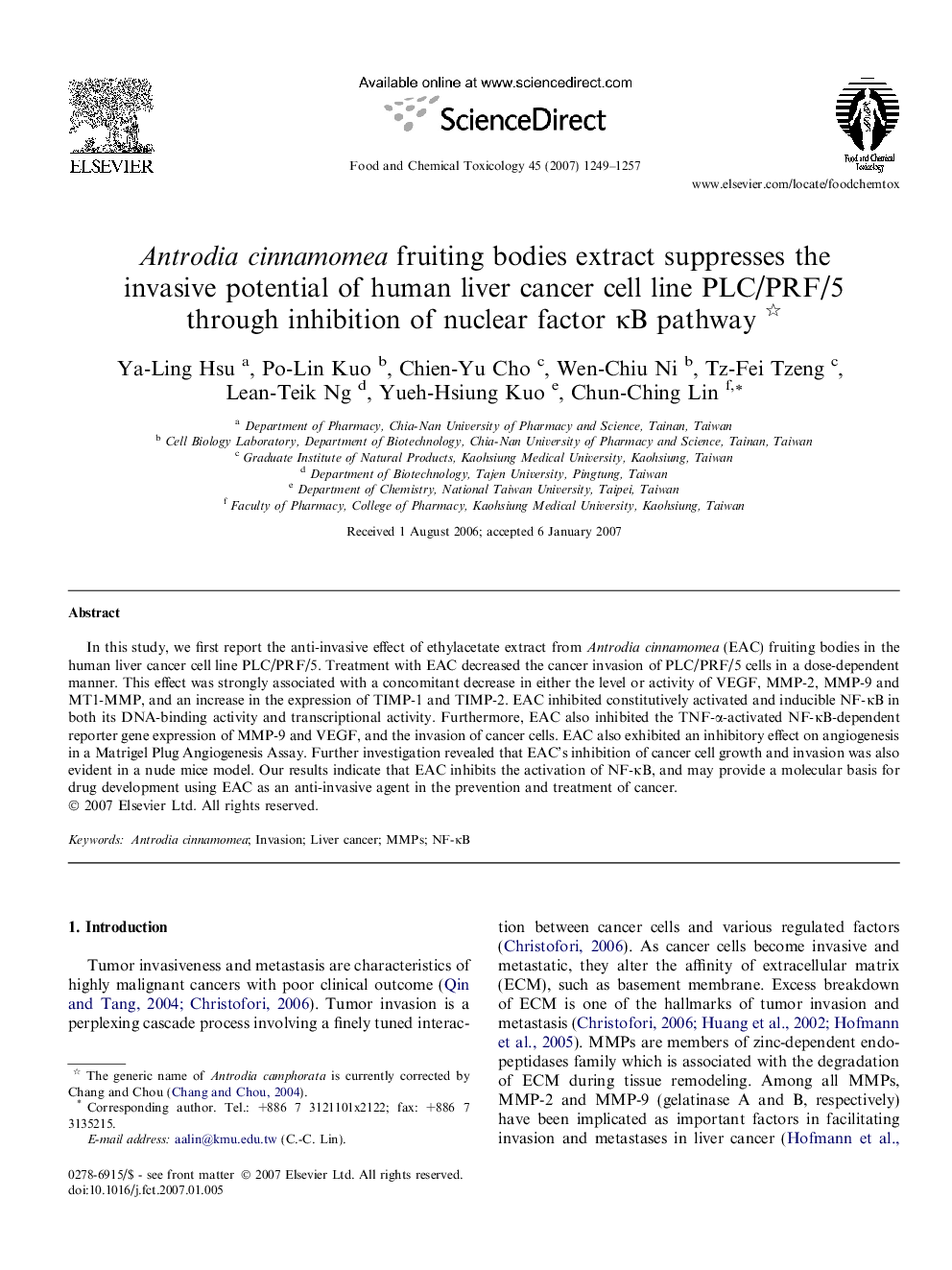| Article ID | Journal | Published Year | Pages | File Type |
|---|---|---|---|---|
| 2586676 | Food and Chemical Toxicology | 2007 | 9 Pages |
In this study, we first report the anti-invasive effect of ethylacetate extract from Antrodia cinnamomea (EAC) fruiting bodies in the human liver cancer cell line PLC/PRF/5. Treatment with EAC decreased the cancer invasion of PLC/PRF/5 cells in a dose-dependent manner. This effect was strongly associated with a concomitant decrease in either the level or activity of VEGF, MMP-2, MMP-9 and MT1-MMP, and an increase in the expression of TIMP-1 and TIMP-2. EAC inhibited constitutively activated and inducible NF-κB in both its DNA-binding activity and transcriptional activity. Furthermore, EAC also inhibited the TNF-α-activated NF-κB-dependent reporter gene expression of MMP-9 and VEGF, and the invasion of cancer cells. EAC also exhibited an inhibitory effect on angiogenesis in a Matrigel Plug Angiogenesis Assay. Further investigation revealed that EAC’s inhibition of cancer cell growth and invasion was also evident in a nude mice model. Our results indicate that EAC inhibits the activation of NF-κB, and may provide a molecular basis for drug development using EAC as an anti-invasive agent in the prevention and treatment of cancer.
